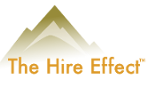Hiring teams struggle in preparation for the hiring process. The greatest angst for most hiring team members is how to conduct a good interview. The majority of the anxiety comes from inventing the questions to ask in interviews. The questions are important, but you must also prepare yourself to be a good interviewer.
Consider applying the following so you can get what you need from every candidate. It could significantly change the outcome of your interviews to:
- Make an effort to consciously clear your biases (both for and against candidates),
- Build a partnership with the candidate in seeing if it is a win/win, and to
- Make candidates at ease by being at ease yourself.
What are your practices for getting into the right mindset to maximize the interviews you conduct? How much time do you spend preparing to interview someone? Ten minutes? Twenty minutes? None at all? Actually, the latter is much more common that you might think.
Smart People
Adam Kahane and Edgar Schein have spent their lives writing, speaking on, and teaching practices that will put you in a good interview conducting space.
Adam Kahane has given TedX talks, written books, and spoken at business and community conferences about creating situations where people can have open dialogue and come to powerful solutions for everyone. In particular he brought forth the concept of presencing in a book titled Solving Tough Problems: An Open Way of Talking, Listening, and Creating New Realities. Presencing is the process of leaving your “baggage” behind and coming clean to the table to be present, to listen intently, to gather information for eventually taking action.
Edgar Schein, a former MIT Sloan School of Management professor, is very accomplished teacher and consultant in the organizational culture and management space. He’s written several books and developed an organizational culture model. In one of his books Humble Inquiry: The Gentle Art of Asking Instead of Telling he takes a deep dive into how orienting your “status” to be one in which you are intent upon getting the assistance of someone. Being in humble inquiry during an interview, in the way that Edgar talks of it, will result in candidates being more at ease. In essence, you’ll work toward making a good choice about hiring that will be a win/win.
New Practices
What practices can get you to be present and humble?
Presencing
Let go of other things you feel you should be doing to clear your mind. And, most importantly, let go of your biases. A few steps, outlined below, and you will be in a better place to fully see the benefits of a win/win choice:
- Write down the things you feel are important for you to be doing and set it aside.
- You can open the list when you are done with your interview.
- Ask yourself, do I have expectations about how this person will interview? Whether you are biased for the good or for the detriment of the candidate, recognize it’s a bias.
- Tell yourself; I will be open to seeing new things about this person.
- Get centered in what you are really looking for – a match for your culture, the skills you need, and the personality traits you want.
- Tell yourself, and be thoughtful about, what those things look like when they walk in the door.
Humble Inquiry
Get clear that you need the cooperation and “all-in” commitment in an interview from each candidate. This requires the humility Mr. Schein talks about.
- Read this to yourself before you greet a candidate: I am here to determine if this candidate is a good fit for our company. I am also here to help this candidate find out if we are a good fit for him or her. I am not better than, nor more powerful than this candidate. We are here to work together to make a good choice. (Hint: you actually have to believe this.)
- Start your interview with the candidate by saying something like: What we are trying to get at together is, Is this a good fit for you and for my company?
If we pay attention to preparing ourselves, there is a treasure trove of information we can gather in order to make good choices about our next hire. Yes, the questions we ask are important too.
What will you do differently to prepare yourself for your next interview?
####
M. Miche Rayment is the Founder and Chief Facilitator for The Hire Effect™. The Hire Effect’s clients gain hiring as a core competency so they can get a cultural and skills match every time. TheHireEffect.com

